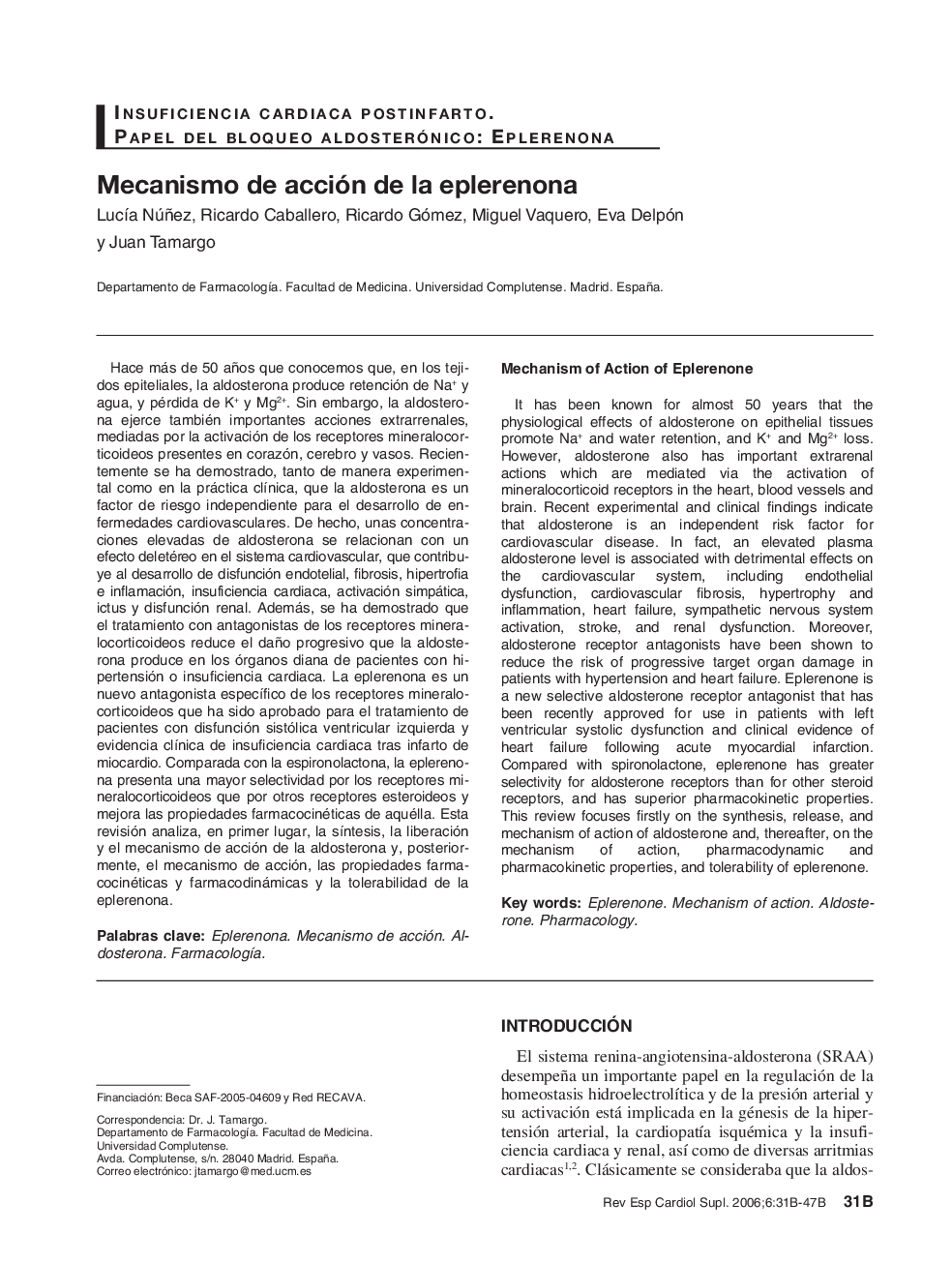| Article ID | Journal | Published Year | Pages | File Type |
|---|---|---|---|---|
| 3019737 | Revista Española de Cardiología Suplementos | 2006 | 17 Pages |
Abstract
It has been known for almost 50 years that the physiological effects of aldosterone on epithelial tissues promote Na+ and water retention, and K+ and Mg2+ loss. However, aldosterone also has important extrarenal actions which are mediated via the activation of mineralocorticoid receptors in the heart, blood vessels and brain. Recent experimental and clinical findings indicate that aldosterone is an independent risk factor for cardiovascular disease. In fact, an elevated plasma aldosterone level is associated with detrimental effects on the cardiovascular system, including endothelial dysfunction, cardiovascular fibrosis, hypertrophy and inflammation, heart failure, sympathetic nervous system activation, stroke, and renal dysfunction. Moreover, aldosterone receptor antagonists have been shown to reduce the risk of progressive target organ damage in patients with hypertension and heart failure. Eplerenone is a new selective aldosterone receptor antagonist that has been recently approved for use in patients with left ventricular systolic dysfunction and clinical evidence of heart failure following acute myocardial infarction. Compared with spironolactone, eplerenone has greater selectivity for aldosterone receptors than for other steroid receptors, and has superior pharmacokinetic properties. This review focuses firstly on the synthesis, release, and mechanism of action of aldosterone and, thereafter, on the mechanism of action, pharmacodynamic and pharmacokinetic properties, and tolerability of eplerenone.
Keywords
Related Topics
Health Sciences
Medicine and Dentistry
Cardiology and Cardiovascular Medicine
Authors
LucÃa Núñez, Ricardo Caballero, Ricardo Gómez, Miguel Vaquero, Eva Delpón, Juan Tamargo,
